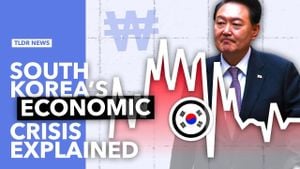Every year on February 23rd, Russia celebrates Defender of the Fatherland Day, honoring the men and women who have dedicated part or all of their lives to serving their country. While some view this holiday as exclusively male-oriented, it has gradually evolved to appreciate contributions from all who serve. The roots of this celebration trace back to its origins during World War I and the establishment of the Red Army by the Council of People's Commissars.
The significance of this day first emerged from the backdrop of World War I. On February 23, 1918, the newly formed Red Army was born out of necessity during this tumultuous period, as external forces, particularly Germany, launched attacks. The decree issued on this date urged citizens to come together for the defense of their homeland. Although the war culminated with the Treaty of Brest-Litovsk, the seed of what is now Defender of the Fatherland Day was planted.
Initially recognized as the Day of the Soviet Army and Navy, the holiday commemorates the anniversary of the Red Army. The first hints of this recognition occurred on February 17th, but with scheduling conflicts, the celebration moved to the nearest Sunday, landing on February 23rd. Since then, this date has become synonymous with honoring military service and valor.
Today, Defender of the Fatherland Day transcends its historical beginning, becoming a day of widespread recognition across diverse groups. Traditionally, schools and kindergartens engage students and their parents by crafting heartfelt messages and cards. The young ones often draw colorful postcards, exemplifying appreciation through art, which are then exchanged among peers and family members.
Throughout the country, citizens gather near memorials and monuments to pay homage to fallen soldiers and commanders, often participating in parades and concerts to celebrate military accomplishments. Memorial sites serve as solemn spots where citizens reflect on the sacrifices made for their freedom.
Local leaders also take time to express their gratitude through speeches and formal addresses. For example, Alexey Gorbov, deputy city Duma, expressed his sincere congratulations, stating, "This holiday symbolizes the strength and courage of our people, readiness to protect our land and our ideals. We honor those who gave their lives for peace and freedom, and express deep respect to today's defenders of our country." This statement captures the essence of the holiday's intent—to honor contributions regardless of time ceased.
Beyond congratulations, the day also prompts discussions surrounding the nature of service to the nation. It has shifted from merely commemorative to inclusive, celebrating both active members of the military as well as civilians who support them. The narrative has widened to include educators, healthcare providers, volunteers, and professionals who have positively impacted the war efforts.
On this day, it’s not uncommon for men, women, young and old alike to find themselves on the receiving end of well-wishes accompanied by small tokens of appreciation. Birthday presents take on the form of military-oriented gifts, such as tools, sporting goods, and tactical gear—all appreciated during this nationwide celebration.
The customs associated with Defender of the Fatherland Day are as vibrant as the postcards exchanged. From heartfelt words uttered among friends to formal military ceremonies, each gesture adds to the collective memory of the nation's resolve to stand united. Citizens embrace the occasion whether by sending cards or posting on social media to celebrate all those who serve.
To this day, the importance of honoring past sacrifices remains strong as the annual observance continues to resonate with Russians. The commemorations unite the nation, as citizens stand together, paying tribute to both historical and contemporary defenders.
Overall, February 23rd serves as a powerful reminder of courage, dedication, and the relentless spirit exemplified by all who serve. This day encourages not just recognition, but also deep reflection on what it means to defend one’s homeland.



